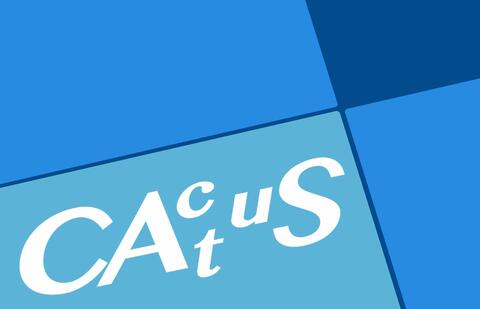CACTUS


Three research projects are being carried out jointly:
1/ A historical study of the concept of critical theory in French and German traditions
The objective is to make comparative studies of the concept of critical theory in the history of ideas.
This first project attempts to understand in what contexts social philosophy makes the normative influence of society an issue in social critical theory It examines:
a) the various theoretical and social contexts in which social and political theory has felt the need to make use of the concept of critical theory and in what contexts it has abandoned the concept;
b) the different meanings of the concept of critical theory and where they have originated (the person or the theory).
By following these two lines of research, project 1 is establishing a genealogy of the concept of critical theory and revealing points at which there have been breaks or periods of continuity in its use. The historical aspect of this part is working on finding out the theoretical climate or social configurations that explain the use of particular concepts of critical theory. As a final topic, the team is trying to understand the factors that have prevented dialogue between the Frankfurt school of critical theory and French critical theory.
2/ The methodological and ontological premises for the concepts of society and critical theory
The objective is to carry out a systematic study of the contours of ‘critical theory’ and ‘society’.
Project 2 is studying two central lines of inquiry.
a) aa section on critical theory traces the dividing line between opposing views of what critical theory is. Some approaches are of the opinion that critical theory was a result of the theory that devised the notion of society, while others state that critical theory is produced by social players and the theory is its receptacle. This arm examines the various methodological presuppositions that underpin the concept of critical theory, the interdisciplinary process whereby philosophical theory exists side-by-side with empirical science and the ontological implications of the idea of ‘inherent critical theory’ and the metaphysical bases for critical theory.
b) research on the concept of society deals with two issues. The team looks at the different possible ways of conceiving social reality, by comparing philosophical arguments with social theories originating in sociology and psychoanalysis. The degree of intentionality that the different theories attribute to society and the extent to which agents play a role in this view of society (socially determined agents as opposed to true agents) are studied in detail.
3/ Current developments in critical theory and its political issues: critical theory, social struggle, social transformations
The objective is to gauge the contribution made by theories of society or social philosophy to subjects that belong to ‘traditional’ political philosophy.
Project 3 looks at the tensions that exist between social philosophy and political philosophy. The scope of social philosophy and political philosophy respectively are assessed in relation to the subject of critical theory. While political philosophy approaches tend to neglect the social dimension of political issues, is it not the case that an approach which reconstructs the normativity of social processes is liable to ignore certain strictly political or legal elements of social theory? The light shed by these comparisons with political philosophy leads to two avenues for study in the area of social philosophy. The first is to look at the extent to which, by proposing a particular view of individuals, their integrity and often even their identity, social philosophy is broadening the questioning of political philosophy. The second is to examine whether the social philosophy perspective tends to disregard certain political and legal issues.
En savoir + : Site Internet CActuS
Team
Prof. Gérard Raulet (Paris IV/Weimar/IRICE)
Prof. Catherine Colliot-Thélène (Rennes 1/EA Philosophie des normes/IUF)
Prof. Franck Fischbach (Université de Strasbourg)
Prof. Stéphane Haber (Paris Ouest Nanterre La Défense/Sophiapol)
Research director : Bruno Karsenti (EHESS)
Prof. Emmanuel Renault (Paris Ouest Nanterre La Défense/CERPHI)
Lecturer : Jacques-Olivier Bégot (Paris 7/Archives Husserl)
Lecturer : Antonia Birnbaum (Paris 8/LLPH)
Lecturer : Alexandre Dupeyrix (Paris 4/IRICE)
Lecturer : Katia Genel (Paris 1/CHSPM)
Post-doctoral : Isabelle Aubert (ANR/FMSH),

